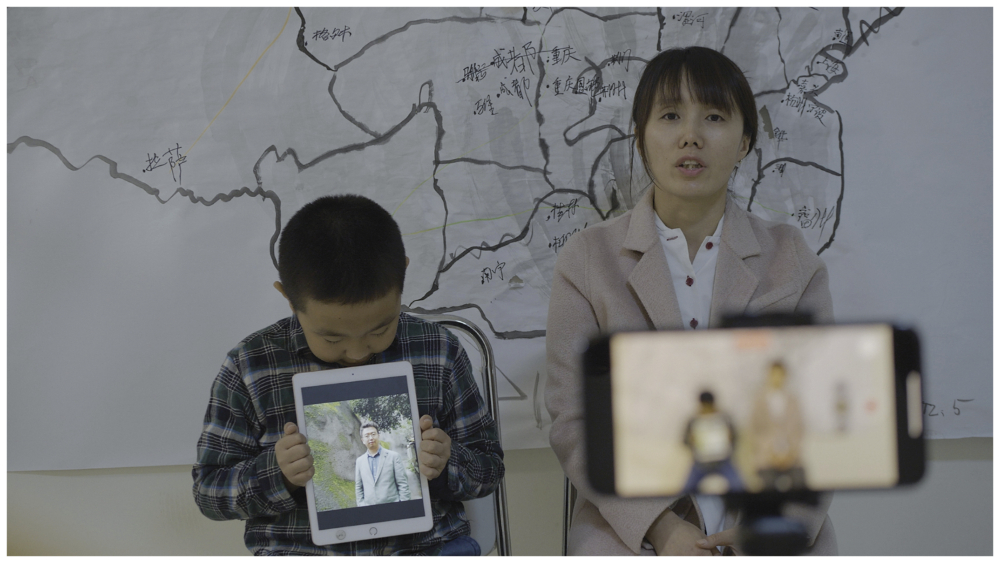
Documentary filmmaker Jialing Zhang, who was nominated for an Emmy for “One Child Nation,” spoke to Variety about her latest film, “Total Trust,” which is running in the main competition at CPH:DOX, the Copenhagen Intl. Documentary Festival.
It tells the chilling story of three women and their families fighting for their human rights in China, where state control is ubiquitous thanks to high technology surveillance, such as facial recognition, big data analysis and points systems that mean citizens gain or lose points depending on their behavior.
Zhang’s intimate footage offers unprecedented access to the impact of this all-controlling system on the protagonists’ everyday lives.
“We didn’t just want to do a film about surveillance but about the people living in this kind of society. We wanted to reach a certain emotional depth and complexity – to try to grasp the anger, the horror, but also the hope, through the resilience of our characters who continue to fight for human rights, freedom and safety, for themselves and their loved ones, and have actually been transformed by the situation they find themselves in,” she says.
Zhang, who is based in the U.S. and cannot return to China where she is on police records after co-directing “One Child Nation” with Nanfu Wang in 2016, directed the entire film remotely. She already gained experience working remotely due to travel restrictions when co-producing Wang’s “In the Same Breath” in 2020 about the COVID-19 outbreak in China.
For “Total Trust,” she worked with local activists on the ground. They were given remote training on how to shoot by Zhang and her team in the US. Strict communication protocols were put in place including the use of encrypted messages that disappeared after 24 hours, nicknames and SIM free phones that couldn’t be tracked.
Questioned about the impact of the film on the protagonists’ lives, Zhang said they had all decided it was their responsibility to take part to raise awareness both about their individual cases – the husband of one of the women is a human rights lawyer who has been in prison since early 2020, and another is a journalist who speaks out against Xi Jinping’s government – but also about a surveillance system which is not just a Chinese problem.
“That’s something we hope to get through with this film, too: it’s not just about China. We want the audience to look at their own countries. This film is about the potential danger of technology in the hands of unchecked power and corporations.
“It’s about how technology can be used for the suppression of human rights and for social control – and Western governments are increasingly using data to monitor their own citizens,” she says, citing recent concerns in the wake of the U.S. Supreme Court’s decision to overturn Roe vs. Wade that data collected from period-tracking apps could potentially be used to penalize women seeking an abortion.
The film doesn’t just address the question of state surveillance but of the silent threat of self-censorship as the result of generations of state control.
“The police lives in your mind,” says Zhang, “because this heightened surveillance is everywhere – on your phone, your computer, when you message your family. You always think twice before posting something on WeChat. Having your account blocked causes such inconvenience because you use it for everything – from communicating to making payments.”
“Total Trust” also features several clips from government propaganda films, which Zhang describes as increasingly well crafted. “The storytelling is so good, it’s not just black and white – a lot of the time, you are not aware you are being brainwashed, it is much more sophisticated and nuanced than before.”
The film’s title itself is directly inspired by a government official’s quote claiming that public trust for the government reached 98% at the height of the pandemic.
“98%, that’s almost total trust,” smiles Zhang. “What about the remaining 2%? It’s so ironic – it’s not true. Because of propaganda and censorship, we don’t hear their voices.
“In China, they don’t exist online – their existence is wiped out – they don’t appear in the media, but it doesn’t mean they don’t exist. There are a lot of young people with critical thinking, and who have access to information,” says Zhang.
“Total Trust” is produced by Germany’s Filmtank, in co-production with Witfilm, the Interactive Media Foundation, ZDF/ARTE and NTR, in association with BBC Storyville and SVT. It is funded by Eurimages, the MOIN Film Fund Hamburg Schleswig-Holstein, MFG Baden-Württemberg, the Netherlands Film Fund and the CoBo Fund, with the support of Chicken & Egg Pictures.
Cinephil is handling world sales.
The film will have its world premiere at CPH:DOX on March 21. The festival runs in Copenhagen until March 26.













